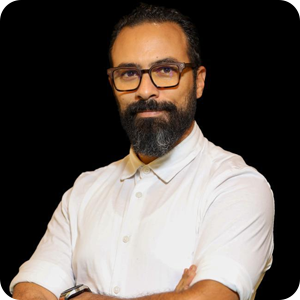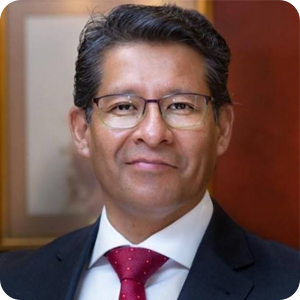There are numerous challenges that the world faces today and, while some are caused by concrete, physical actions, others are based on words. The devastating effect of hate is not something new. However, its scale and impact are now amplified by online communication which has become one of the most common ways of spreading divisive rhetoric on a global scale, threatening peace around the world. The International Day for Countering Hate Speech is marked every June 18th to raise awareness of the risks posed to human rights by hate speech. We asked international human rights experts to share some opinions about this. Read our article to learn what they think.
Key Takeaways:
- In a recent survey by UNESCO/IPSOS across 16 countries, 67% of internet users reported encountering online hate speech, and 85% expressed concern about the impact and influence of disinformation.
- In 2021, the General Assembly of the United Nations adopted a resolution proclaiming June 18 to be the International Day for Countering Hate Speech in light of the worrying rise in xenophobia, racism, intolerance, violent misogyny, antisemitism, and anti-Muslim hatred worldwide.
- According to experts, hate speech undermines democratic values, diverts resources from development, leads to economic instability, social unrest, and violence, hinders social cohesion, and results in human rights violations, decreased economic opportunities, and increased uncertainty.
- To address hate speech, comprehensive strategies involving legal frameworks, education, awareness campaigns, and technology regulation are necessary.
DevelopmentAid: What are the effects of hate speech and how does it affect developing economies?

“Hate speech has become pervasive, particularly with the rise of social media. Although it has always existed, social media has amplified and, in a sense, “democratized” it. The effects of hate speech are detrimental at various levels and lead to human rights violations, with the perpetrators often finding justification or motivation in such discourse. It fractures and weakens social bonds within communities, particularly towards vulnerable groups such as religious minorities, ethnic minorities, sexual minorities, and immigrants. This creates an environment that is conducive to violence which can escalate to murder in some cases and genocide in others. Individually, victims of hate speech often suffer mental fragility, with some tragically resorting to suicide. They feel insecure in terms of their bodily integrity and their possessions. A cycle of violence emerges where victims of hate speech, subjected to moral, verbal, and physical violence, feel compelled to retaliate. Hate speech is also wielded by populist movements, especially during electoral periods, either against political opponents or to mobilize supporters against populations. It serves as a potent weapon that impedes the progress of developing countries. Instead of harnessing their full potential, these countries often exclude or even punish certain groups against whom hate speech has been generalized and normalized. In developing economies, the effects of hate speech are particularly devastating. It hampers social cohesion, disrupts economic activity, and undermines efforts towards sustainable development. By fostering division and animosity, hate speech undermines trust, cooperation, and collective action, hindering the realization of shared goals and prosperity. Therefore, combating hate speech is essential for fostering inclusive societies and enabling economic growth in developing economies.”

“Definitely, hate speech is a well-documented factor in both the developing and developed world. It can incite violence, brutality and foster intolerance, discrimination, and racism. Empirical evidence shows that hate speech becomes a human rights violation when it encourages discrimination, hostility, or violence towards individuals or groups based on factors such as race, religion, ethnicity, or other identity markers. Hate speech not only harms its immediate targets but also creates a broader climate of fear and hostility in society. Firstly, hate speech “normalizes” violence by making it seem to be acceptable or even justified against the targeted groups. Secondly, it breeds fear and anger. Constant bombardment with hateful messages can lead to increased tension and distrust between different groups in society. Thirdly, hate speech inspires action and, in some cases, can directly inspire violence (UNDP, 2023, UNESCO, 2023). The consequences of hate speech can be significant and diverse, impacting individuals and societies on both small and large scales. Furthermore, this problem has noteworthy adverse effects on the social and economic aspects of society, especially in developing countries. Violence, social unrest, society polarization, and economic instability are among the indirect effects of hate speech. Regarding the impacts on developing economies, I can outline:
- Undermining democratic values
- Diverting resources from development to security
- Fostering economic instability by deterring investment, tourist outflow, and other consequences
- Provoking social unrest and violence
- Hindering social cohesion: A strong sense of national unity is crucial for development. Hate speech that divides communities along ethnic, religious, or other lines weakens social cohesion. This can make it difficult for governments to implement policies that benefit everyone
- Violating human rights
- Decreasing economic opportunities
- Increased uncertainty and instability
In summary, hate speech has a significant negative impact on both the social and economic fabric of society, particularly in developing economies. It can lead to economic instability, social unrest, human rights violations, reduced foreign investment, decreased economic opportunities, increased uncertainty and instability, negative impact on business and economic environments, and reduced economic growth and development.”

“The effects of hate speech are different for the person(s) making the statement, for the targeted group or individual, and for the wider audience. The person speaking ill of others may gain relief from their inner rage (although this relief is usually short-term), but may also excite even bigger inner hatred. They may gain benefits from the listening audiences (such as attention, fear, authority, loyalty, and even votes for politicians) but, since in many countries hate speech is illegal, it may involve trouble with the law, or trouble with any other group or individual that disagrees, particularly the target. For the target group or individual, the effect of hate speech may also be internal or external. The target may feel offended, shamed, dishonoured, hurt, etc. On the other hand, they also may feel angry or incited to do something about it. Their reaction may vary from doing nothing at all (which is mostly the case), condemning the hate speech, taking legal action, confronting the person(s) engaged in hate speech, or even reacting in the same manner – with hate speech. The most challenging aspect is that the target may have negative consequences in society, such as increased discrimination, marginalisation, conflicts, etc. The key effect of hate speech is on the wider audience. The most appropriate effect is when the audience dismisses hate speech as it is, showing that such an attitude is not acceptable to society. However, this is rarely the case. Hate speech often at least makes people think about what has been said or store it in the memory for later manifestation. It may also make people question the statements and this may incite a debate in society which is positive and may reconcile differences in the least toxic way. Reconciliation through dialogue is the best solution to toxic hate speech. The worst scenario is when hate speech snowballs and becomes accepted by more and more people who, at a certain point, act against the target. This is the dangerous turn and the actual toxic spill which inevitably leads to conflict, when even those seemingly neutral about the issue (latent haters) act.
Now, how does this affect developing economies? In the best case, it does not affect them, if people decide they are not into conflicts. Unfortunately, this is not usually the case. The most common case is that stereotypes and prejudice are widespread and various patterns of marginalisation and discrimination towards the target are developed, hidden or open, intended or unconscious. This deprives the economy of the available opportunities and resources, including in terms of labor force, markets, etc., because people decide, based on hatred, to limit their connections in society. Some research shows that the smaller the country or company, the greater the divisions between people, thus the greater the loss for the economy and society. Unfortunately, the situation may develop into open conflicts which we are witnessing more and more often in the world, leading to destruction.”
See also: How can development aid help to improve human rights?

“This situation causes a negative effect that impacts people’s minds, creating a so-called effect that can be highly counterproductive for developing economies. For example, what is currently happening with the issue of the Mexican Embassy in Ecuador (Ecuador stormed the Mexican embassy in an attempt to capture the country’s former Vice-President who was secreted inside – Editor’s note) motivates the closure of doors to a country that is in a political, economic, and security crisis, exacerbating any established problems and bringing with it other negative factors such as hatred, racism, xenophobia, and impacts on commercial exchange and tourism. The measures or consequences of an act that is not well thought out can lead to problems that are so significant that they range from the cessation of certain agreements to not only the scarcity of good relationships but also limitations on access to material goods.”

“One of the main effects of hate speech in underdeveloped countries is the deepening of poverty and the lack of development opportunities. One example of the hate speech effect can be observed in Colombia. Here, in my opinion, the anachronistic political speeches, in which the ideas of communism are refreshed by the current president, cause significant economic damage. Thus, this politician and his associates have proposed to create stereotypes, stigmatize, and use derogatory language against all people and institutions that represent legislative power, judicial power and the productive sector of the country. They activate social network strategies against anyone who is in favor of capital and wealth within the framework of the liberal and democratic state. In this case, the concrete consequence is seen in the loss of more than 200,000 jobs, factory closures, and a very poor performance of the economy in Colombia.”
DevelopmentAid: Hate speech or free speech: is it an ethical dilemma? How can it be differentiated?

“The clash between hate speech and free speech is a multifaceted ethical dilemma. While international human rights law robustly defends the right to express oneself freely, hate speech, characterized by its targeting of individuals or groups based on various attributes, seeks to propagate contempt and hostility. Unrestricted free speech can inadvertently amplify hate speech, resulting in tangible harm and eroding the sense of safety and respect within communities. Conversely, imposing restrictions on hate speech can be perceived as encroaching upon free expression, potentially stifling open discourse and critical engagement with contentious issues. To navigate this intricate terrain, it becomes imperative to delineate between protected free speech and harmful hate speech. Factors such as severity, intent, and causality play pivotal roles in this distinction. Evaluating whether the speech incites imminent violence or discrimination, as well as assessing the level of offensiveness and de-humanization, helps in determining its potential impact. Moreover, considering the speaker’s intent to cause harm or incite violence against a target group, along with examining the presence of a clear link between the speech and potential harm, aids in discerning the underlying motives behind the expression. Furthermore, analyzing whether the speech targets individuals or groups based on characteristics recognized by international human rights law, such as race, religion, or sexual orientation, provides additional insight into its discriminatory nature. Finding a harmonious equilibrium necessitates adhering to international human rights law which permits restrictions on hate speech to safeguard individuals and groups from discrimination and violence. These restrictions must be meticulously defined, proportionate, and necessary to achieve a legitimate aim, thereby striking a delicate balance between upholding free expression and safeguarding against the pernicious effects of hate speech.”

“That is indeed a difficult question and may turn out to be very subjective, because what I can take as offensive and fearsome, may be encouraging and stimulating for you, for example. The law has often made the difference on the basis of the consequences (or effects) to the target group, including internal and external but one can rarely predict the exact consequences of their statements. Personally, I believe in free speech and I believe everyone should be allowed to say anything they want. However, I also believe people should, from an early age, learn to communicate to others in a healthy way. This means that I should be able to say to others those things that I would accept being said to me. It also means that I should communicate directly with the people I have issues with and engage them in dialogue, rather than inciting other people to hate them. Further, it means that I chose my words wisely to maintain a decent and polite discourse, particularly in the public arena. And, should my speech cause other people to be persecuted without a cause, I should take responsibility for this. In human rights, there is a maxim that says, “my right to wave my finger in front of your face ends where your nose begins.” We should consider that.”

“Freedom of expression should have certain limits, especially when we discuss speeches that are harmful to society, disseminated through communication that is neither healthy nor coherent, and that cause negative effects. This should be evaluated, analysed, and disseminated responsibly. People who regularly read and stay informed will know how to discern and draw their own conclusions in an informed and safe manner. However, another sector lacking these good practices may not do so which could be detrimental to societies.”

“This is an ethical dilemma because, without a doubt, the right to freedom of expression must be accompanied by a duty of respect, empathy, and truthfulness with what is expressed since, although there is no universal definition of hate speech in accordance with international law, nor in matters of human rights, it is commonly understood as those speeches through which people or groups of people with other forms of identity are attacked because of their physical conditions or their thoughts, and this can have consequences that go beyond deliberation in democracy. It is possible to make a difference in several ways. One is to highlight hate speech when it occurs and not contribute to its propagation. Another is to defend one’s own ideas vehemently, with truthfulness, and with the clarity that our ideas should not affect the dignity of other people, we can be an opponent in many aspects within the framework of respect and always address opposing ideas, but not to people. On social media, a lot of self-control is needed, since it is easier to fall into disrespect and aggression against those who oppose our ideas.”
DevelopmentAid: What are some recommendations for the international community to tackle hate speech?

“To effectively address hate speech on an international scale, it’s crucial to implement context-sensitive strategies that respect cultural differences. Awareness campaigns can be tailored to specific regions, with guidelines developed by organizations like the UN to highlight the harm of hate speech. These frameworks provide clear examples and empower local governments and NGOs to create culturally relevant campaigns and ensure messages resonate with diverse communities. Education plays a vital role in combating hate speech, starting with early childhood education. Integrating media literacy and social-emotional learning into school curricula helps children to understand the impact of words and to identify hate speech. Additionally, providing teachers with training and resources enables them to address hate speech in classrooms effectively. Intercultural exchange programs further promote understanding and empathy among youth to foster inclusivity and respect for diverse perspectives. Counteracting hate speech with positive narratives is another effective strategy. Supporting alternative platforms and empowering artists, journalists, and influencers who promote tolerance and respect through their work creates spaces for constructive dialogue. Community dialogues facilitate conversations between different groups thus addressing underlying tensions and fostering reconciliation. Furthermore, promoting sports initiatives that encourage teamwork and inclusion across cultural divides reinforces positive values. While implementing these recommendations, it is essential to recognize and respect cultural differences. Avoiding a one-size-fits-all approach ensures that strategies are relevant and effective in diverse contexts. By raising awareness, educating from a young age, and promoting positive narratives, the international community can work towards a more inclusive and respectful world, both online and offline.”

“Addressing hate speech requires a multifaceted approach involving various stakeholders at the international, national, and local levels. Here are some recommendations for the international community to tackle hate speech:
Legal Frameworks:
- Standardized Definitions: Countries should work towards a shared understanding of hate speech, considering cultural contexts but upholding core human rights principles.
- Clear Legislation: Enact and enforce clear national laws that prohibit hate speech while safeguarding freedom of expression.
- International Cooperation: Develop international frameworks for cooperation between law enforcement agencies to track and address online hate speech with respect for national jurisdictions.
Education and Awareness:
- Media Literacy: Implement educational programs, especially for youth, that promote media literacy skills to critically evaluate information and identify hate speech.
- Intercultural Dialogue: Foster intercultural dialogue and understanding through educational exchanges and programs that celebrate diversity.
- Public Awareness Campaigns: Launch public awareness campaigns that highlight the dangers of hate speech and promote tolerance and respect.
Tech Companies and Social Media Platforms:
- Content Moderation: Tech companies should develop and implement robust content moderation policies to identify and remove hate speech while being transparent about their processes.
- User Reporting Mechanisms: Create easy-to-use reporting mechanisms for users to flag hate speech content.
- Algorithmic Bias: Address algorithmic bias that can amplify hate speech by promoting content that reinforces existing prejudices.
Civil Society and Community Engagement:
- Empowering Grassroots Organizations: Support and empower civil society organizations working to counter hate speech at the community level.
- Victim Support: Establish mechanisms to provide support and protection for victims of hate speech.
- Counter-Narratives: Encourage and amplify counter-narratives that promote peace, tolerance, and respect for human rights.
Role Models and Public Figures:
- Setting an Example: Political leaders, religious leaders, and other public figures should set a positive example by denouncing hate speech and promoting inclusive rhetoric.
- Holding Them Accountable: Hold public figures accountable for spreading hate speech through public pressure or potential consequences.
By working together on these various fronts, the international community can create a more robust and coordinated approach to tackle hate speech and foster a more peaceful and inclusive global society.”

“Learning communication from an early age and understanding differences should be a goal in our modern societies. We should not wait for those people to become politicians and allow them to go public with hatred. The majority should be enlightened enough to be able to dismiss such toxicity rather than embrace it. We should also nurture the culture of dialogue instead of the culture of divisions, which is becoming more and more present in modern societies. We should question things and not take for granted anything that people say, particularly when people talk negatively about a third party. Gossip is becoming culturally acceptable, but is it good for society, and is it really something we want? And, most importantly, we should seriously consider our actions and reactions, including when it is such a small thing like writing a comment under a post on a social network. We should be able to reason the consequences to us, to others, to society.”

“Access to disseminate information that generates negative effects on social networks and other technological tools should be limited and regulated. However, free access to disseminate information on these platforms can improve social well-being and generate communication benefits. Positive speeches contribute to preventing countless problems.”

“I believe that there is a great responsibility in the media, from the most powerful and traditional ones that operate on multiple platforms to the alternative media that operate at a territorial level, with little technological capacity, and with a limited reach, so as not to become echo chambers of these speeches, or allow themselves to be exploited by those who profit from hate speech. When journalists allow themselves to be carried away by their passions and political preferences, they fall into that trap and, by action or omission, they favour these speeches. And finally, all citizens must act responsibly on social networks, acting with respect for the ideas of others, and truthfully and respectfully promoting their own ideas.”
See also: Human freedom on decline: causes, consequences and solutions | Experts’ Opinions
To effectively combat hate speech and foster inclusive development, international organizations need professionals who want to make a change. Platforms like DevelopmentAid provide essential resources and opportunities for experts. By becoming a DevelopmentAid Individual Professional Member, you will gain access to over 6,500 job openings in the international development sector, as well as access to tenders and grants for individuals, contact information for over 300,000 organizations in the field, and much more.

